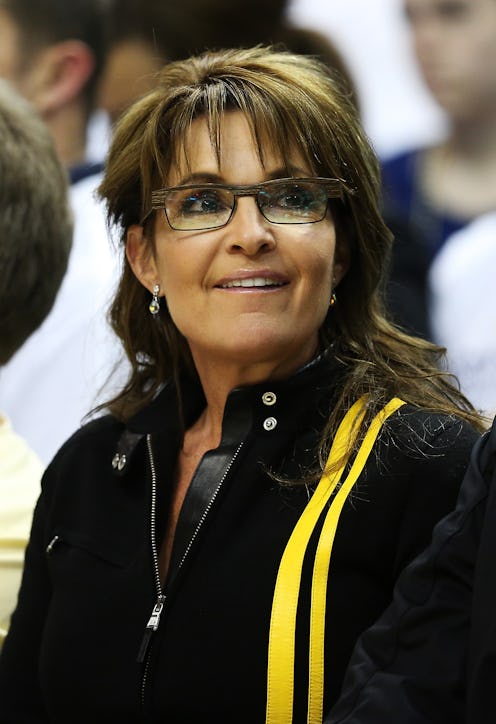News
Alaska Making Progress On Sex Ed?
Alaska is considering a new education initiative that would teach the warning signs for sexual abuse. I suppose this is cause for celebration, but considering the fact that Alaska is also the state with the highest rate of rape in the country, it's also a little depressing that these sorts of programs don't already exist. It's also pretty depressing to remember that schools in Alaska are only "encouraged" to teach sex ed, but don't have to if they don't want to. Sarah Palin is probably very proud.
Alaska isn't alone on that front. There are 23 other states in our great nation that don't require school districts to teach sex education, and they all have some predictable related problems: Florida is first in the nation when it comes to HIV infections; Alabama has the highest rate of chlamydia and gonorrhea; and Texas, where 96 percent of districts teach abstinence only, has the fifth highest rate of teen pregnancy, and the third highest rate of teenagers with AIDS. In general, lack of proper sex education is linked to higher rates of teen pregnancy, unwanted pregnancy in general, and spread of STIs. So that's exactly what we want to encourage in almost half the country, right?
Alaska still isn't looking to start mandatory sex ed, but they are looking to address their sexual violence problem by mandating that schools teach the warning signs for sexual abuse. Which is a pretty awesome step in the right direction. And some districts are going a step further and implementing programs aimed at teaching young people about healthy relationships. All of which sounds fantastic.
But as John D. Sutton argues on CNN, this commendable effort isn't enough. Catching the signs of child sexual abuse is incredibly important, obviously, and becomes only more so when one considers how hard cycles of violence can be to break. However, he argues, these sorts of programs should also be supplemented with mandatory sex ed. He writes that, although he understands why many in the state are more comfortable with an "opt in" system for sex ed and healthy relationship programs, "it's clear [that] rates of violence remain unacceptably high under the voluntary system." Opting out of sex ed doesn't mean you've opted out of the problems that come with sexually active teens.
As we said, Alaska is not alone in this. Most states don't require school districts to have healthy relationship programs; almost half of all states don't even require sex ed. And the result is teens are all too often unprepared for issues that come up in their dating life. Over 20 percent of both male and female adolescents have experienced psychological or physical abuse from an intimate partner, and up to a third of teens who are having sex aren't using condoms. From safe sex to safe relationship dynamics, teens are woefully misinformed.
Maybe someday we'll live in a world where teens are taught to respect themselves, respect their bodies, and understand their own agency. Maybe someday we'll live in a country where not only Alaska but the nation as a whole provides highs schools with not only sex education, but information about what constitutes a healthy relationship. Maybe someday, but we clearly have a long way to go.
